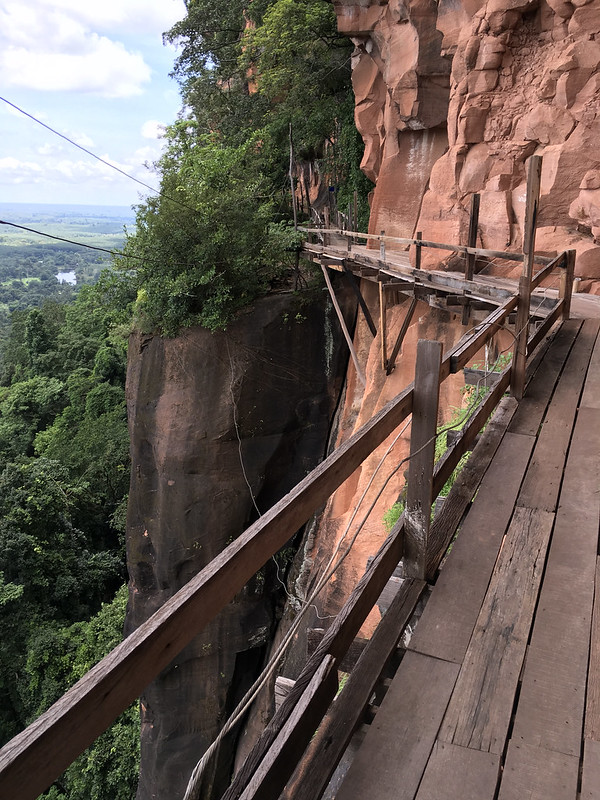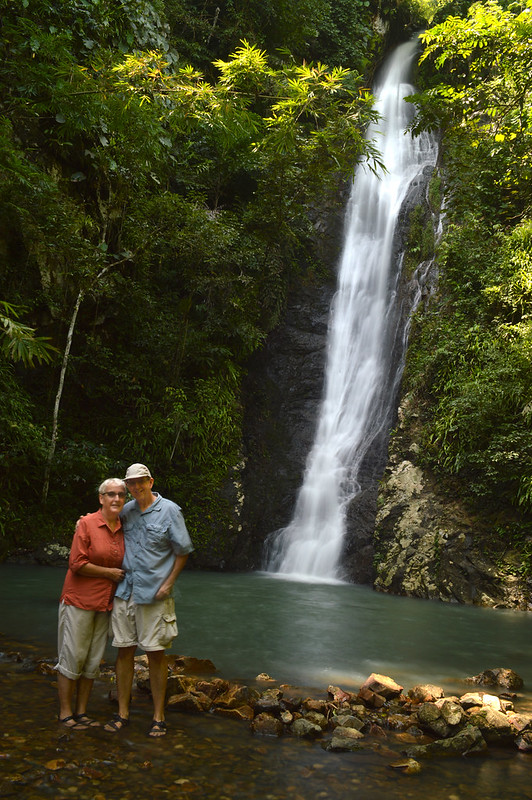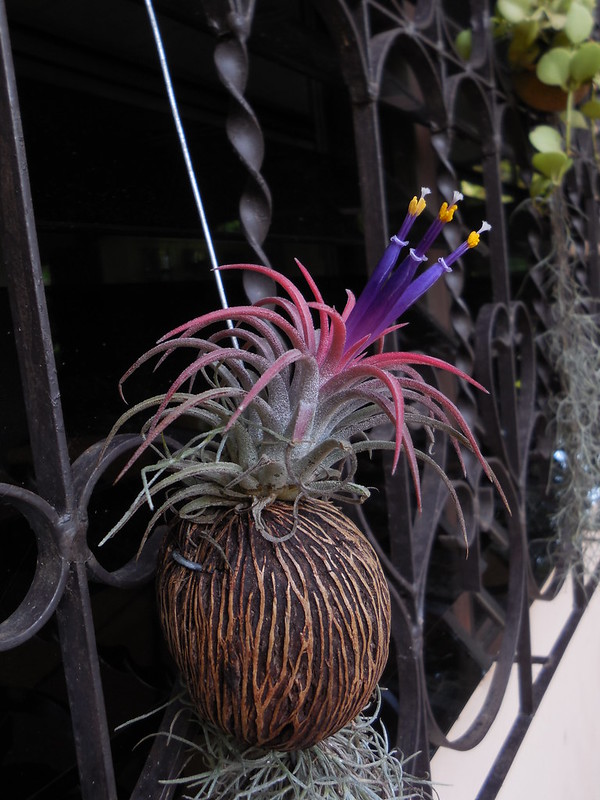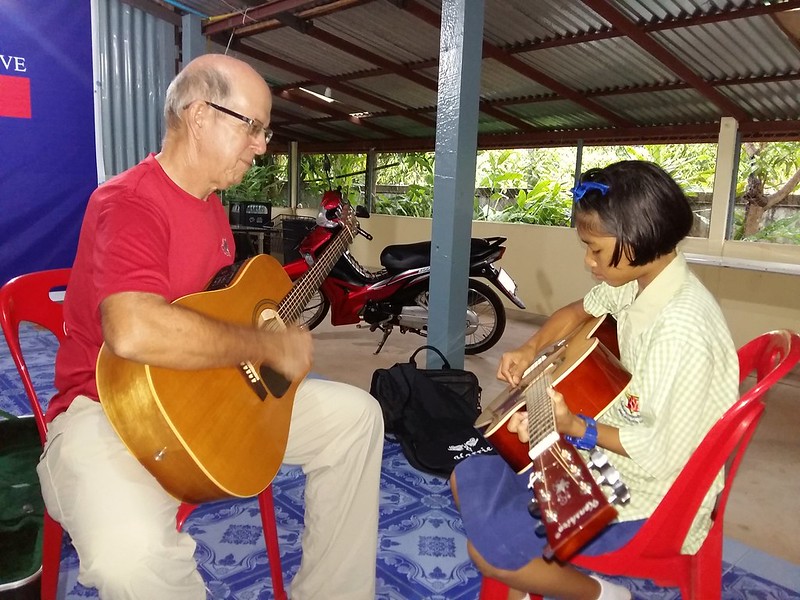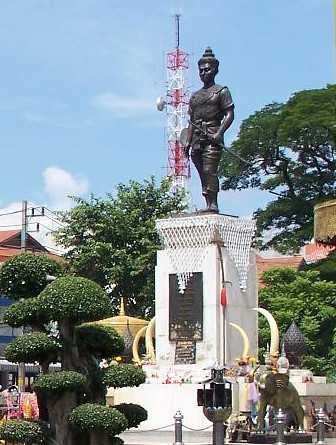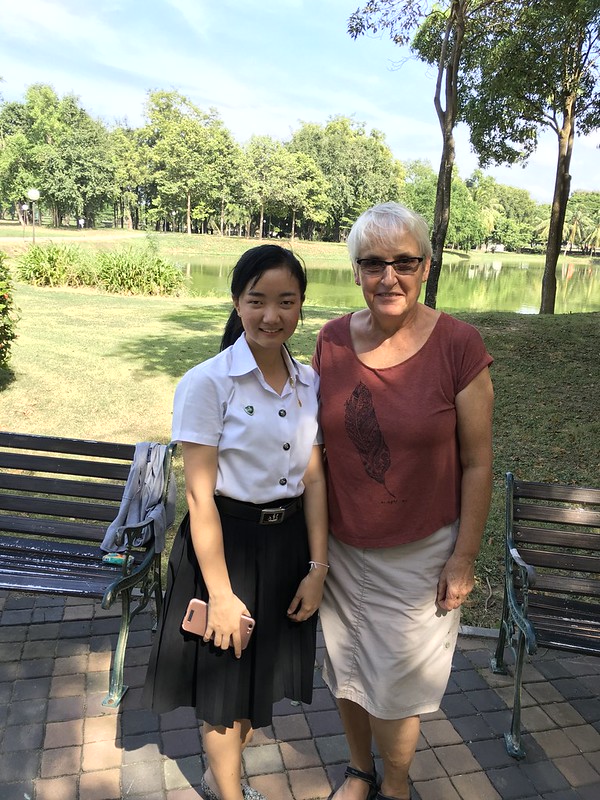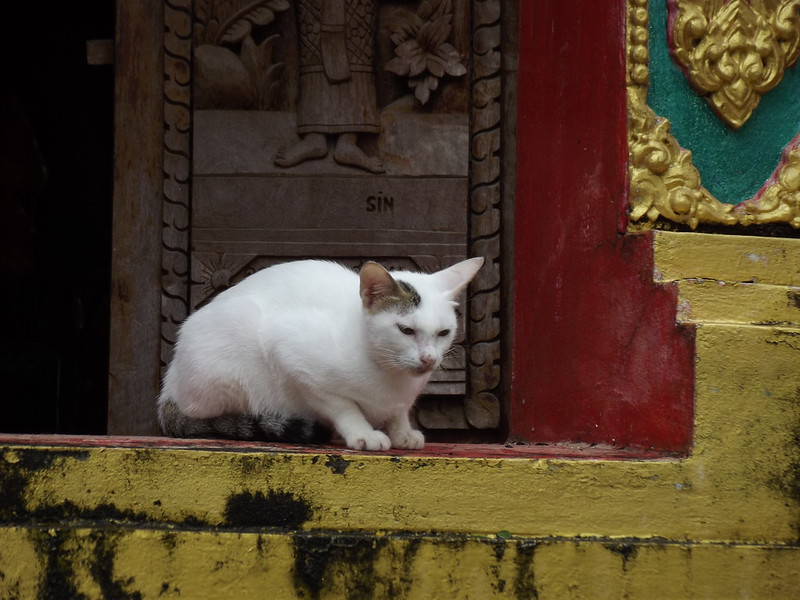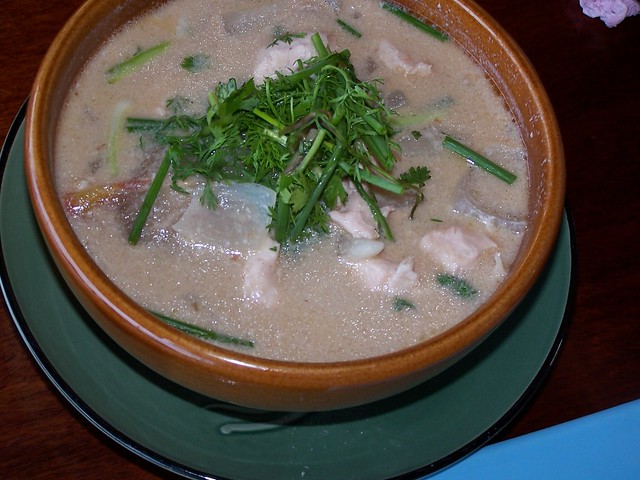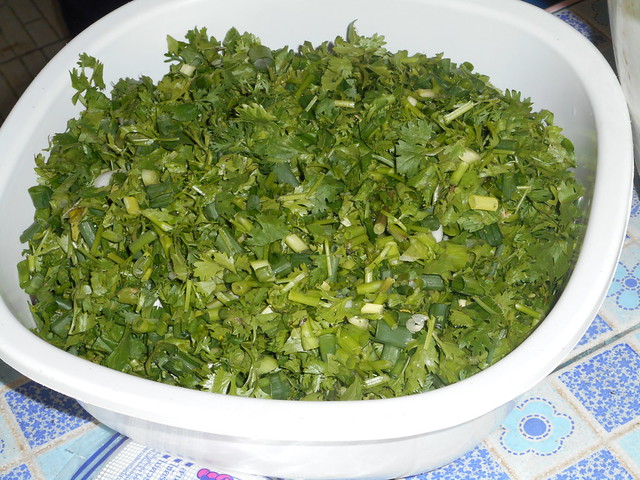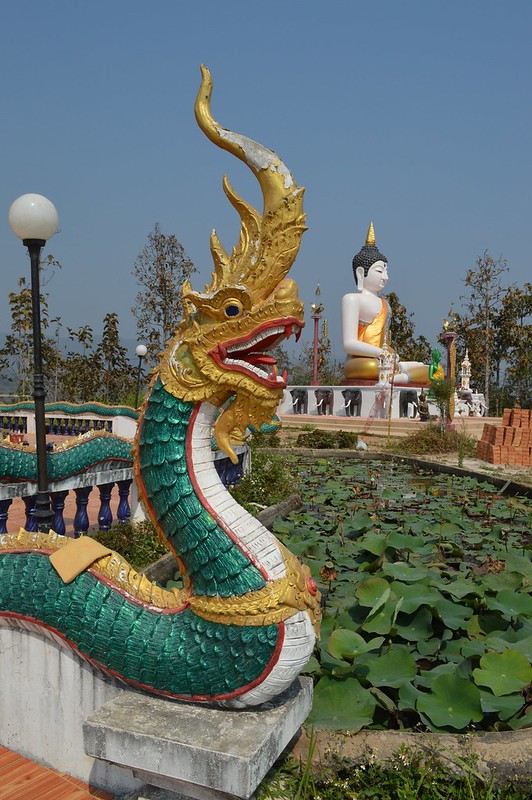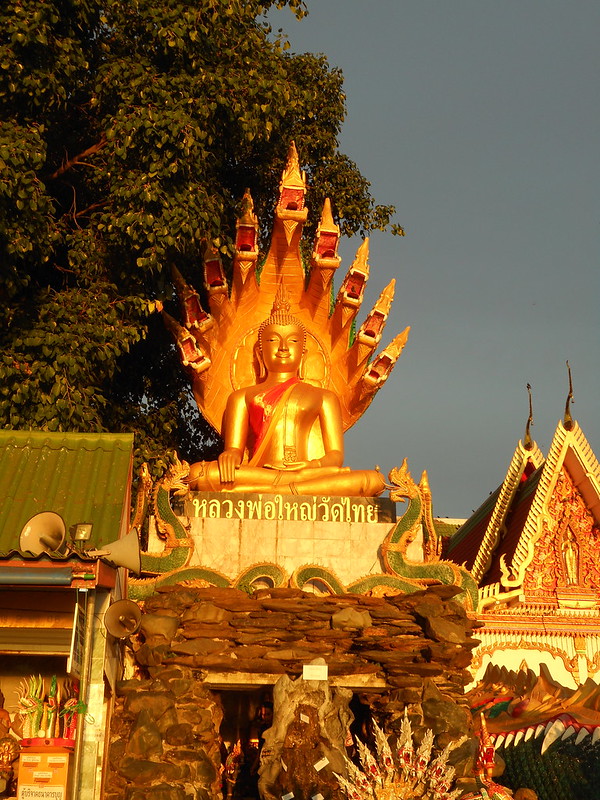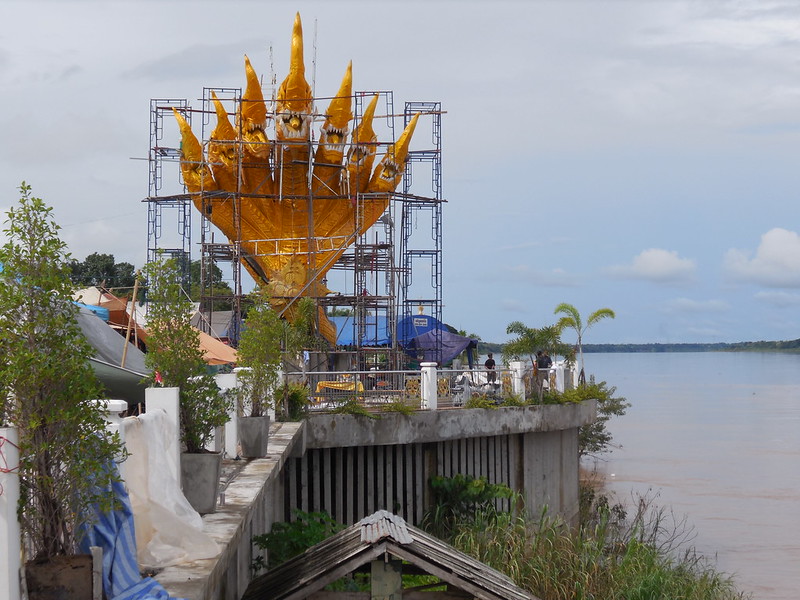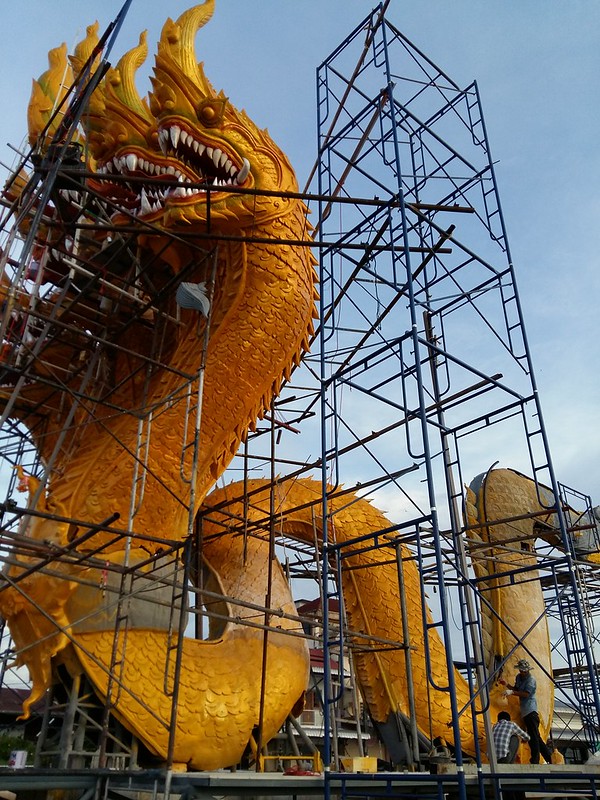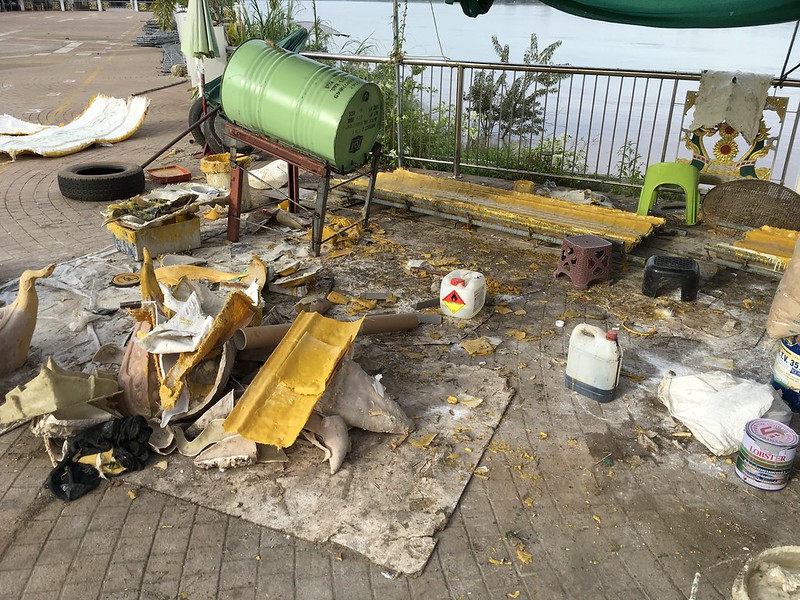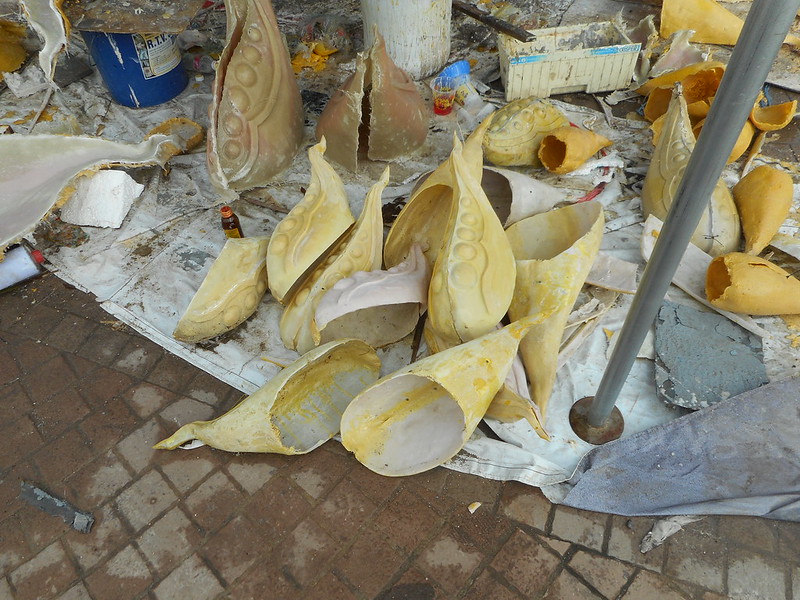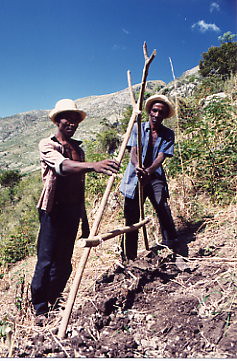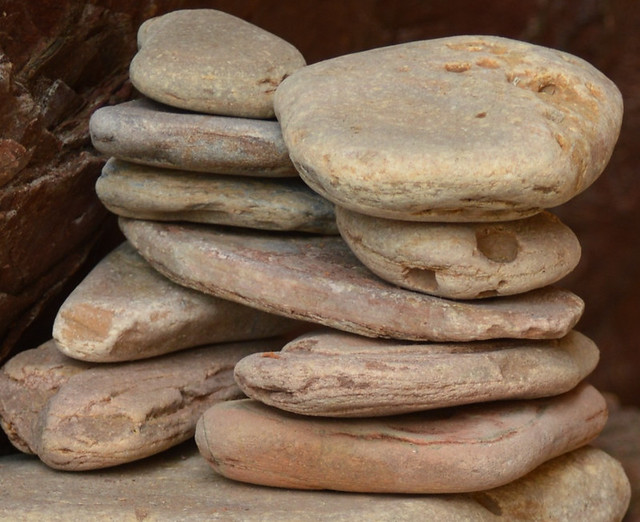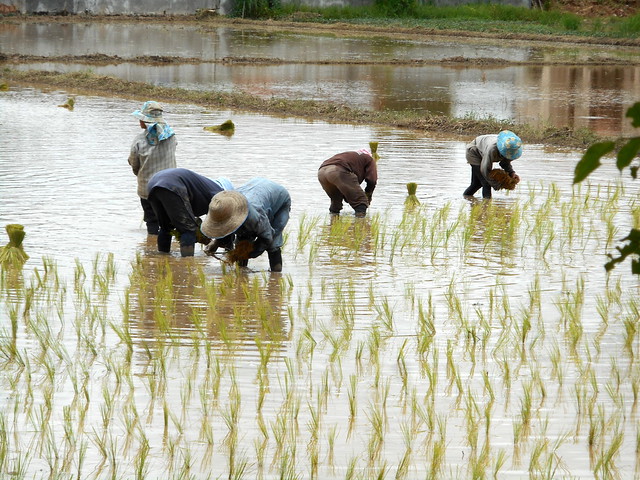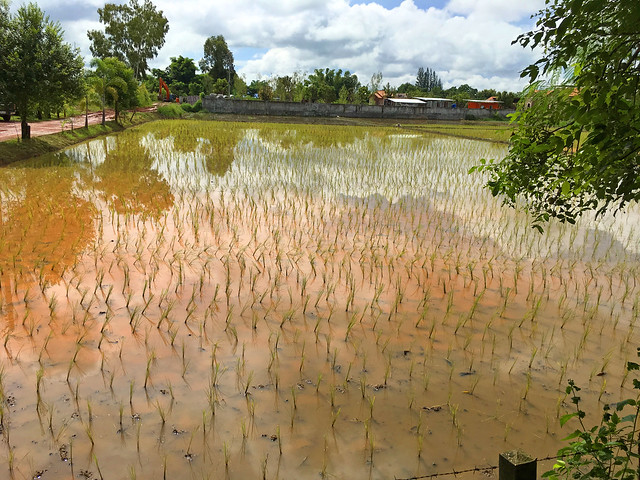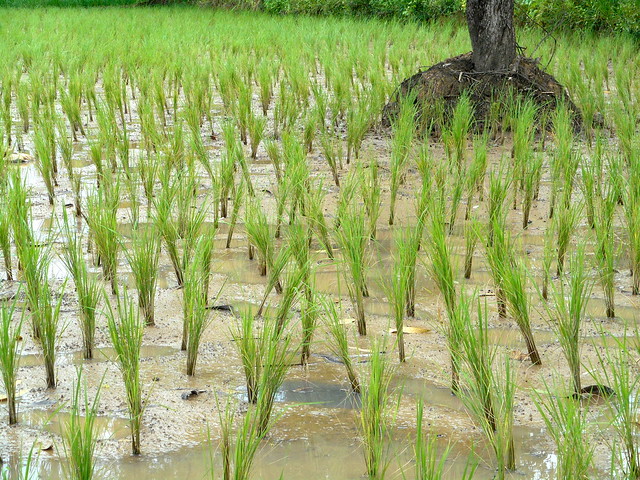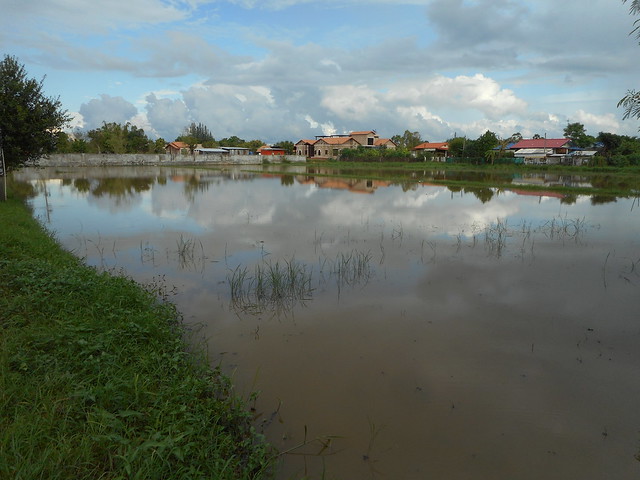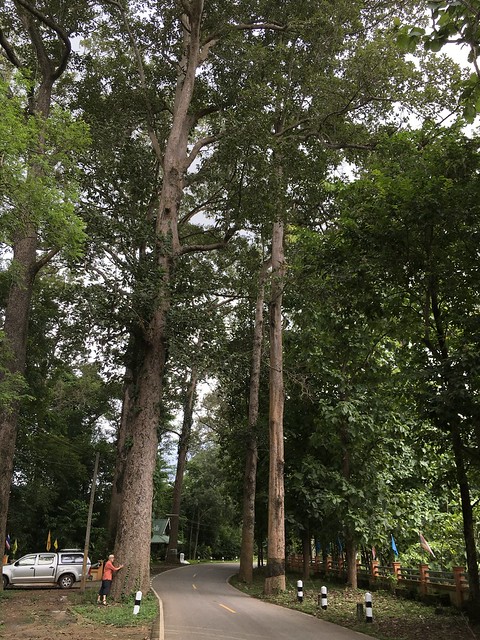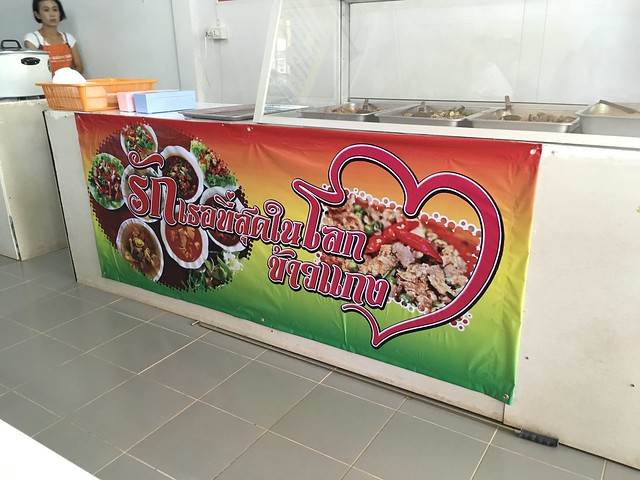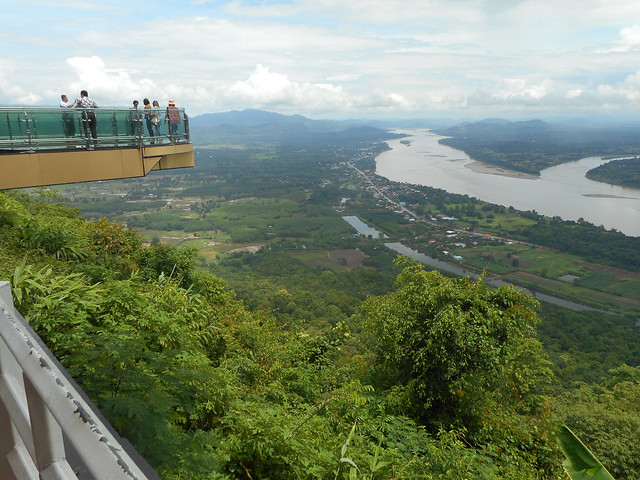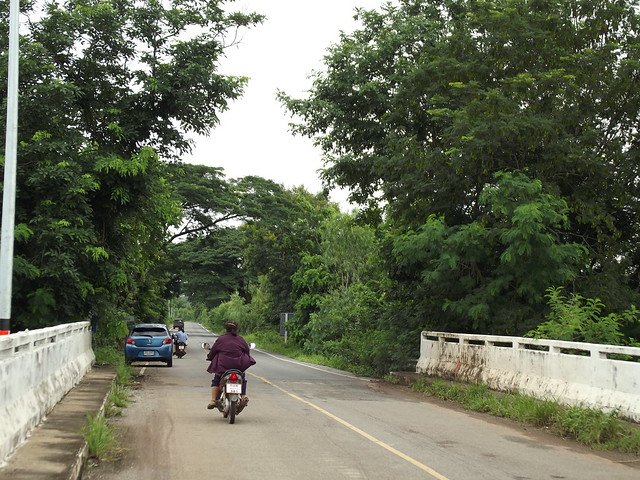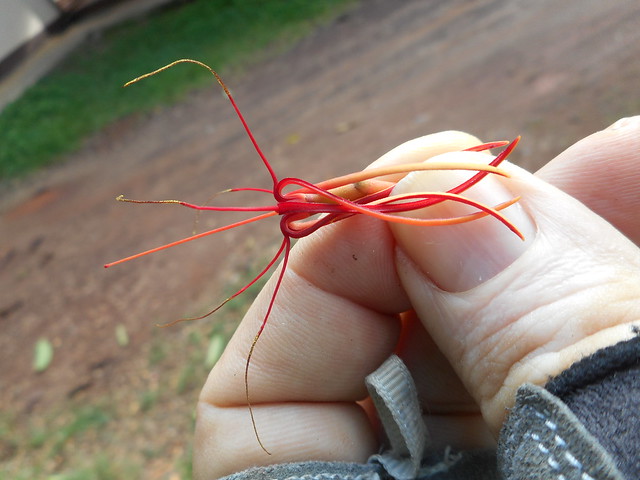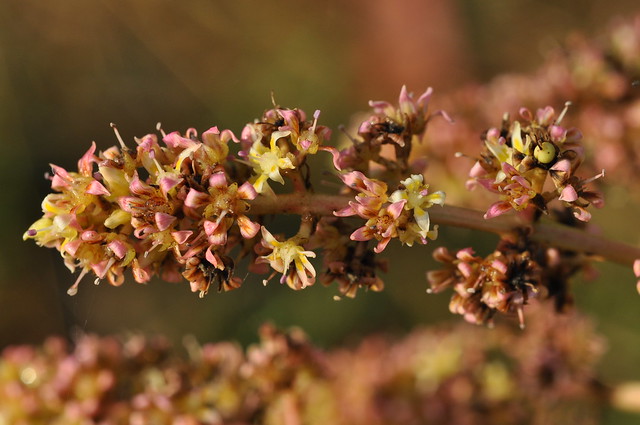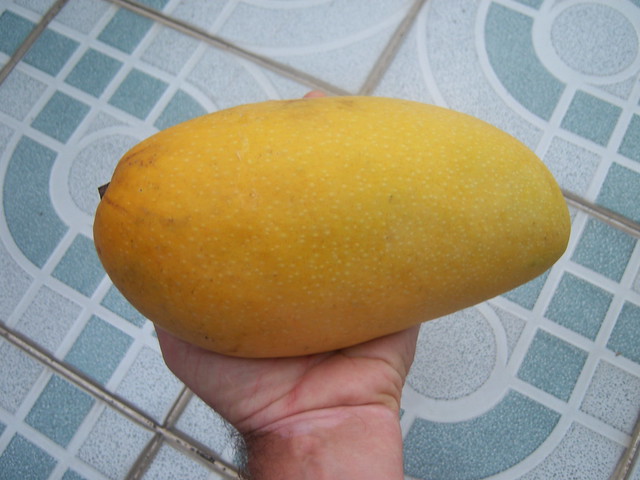Each day proclaim the good news that he saves.
Publish his glorious deeds among the nations.
Tell everyone about the amazing things he does.
Great is the LORD! He is most worthy of praise!
He is to be feared above all gods.
The gods of other nations are mere idols,
but the LORD made the heavens!
Honor and majesty surround him;
strength and joy fill his dwelling.
1 Chronicles 16:23-27 (NLT)
It's that time of year when I look back over photos from the past year and reminisce. This year found us spending a significant amount of time on two different continents. Traveling back to North America always brings back even more memories.
January-Nicolls Peak
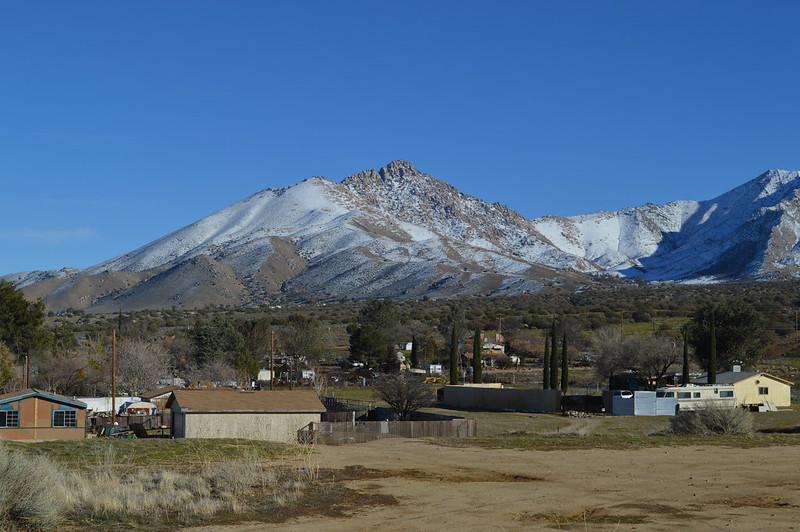
I normally say that I don't have favorites of anything, but there are two places I especially like in California: Morro Bay and Lake Isabella.
Lake Isabella has special memories for us. After we left Haiti in 1993 and after I finished up the Apprenticeship in Ecological Horticulture, I applied for a job in Bakersfield. I had never heard of the place before, but we got an opportunity to see it for the first time on the way to a conference in Anaheim. We stopped by there to visit my cousin, Pat, who lived down the street from where this photo was taken. I remember seeing this mountain for the first time and saying, "I want to climb that mountain," which we did several years later (we each brought some ticks home from that trip).
Our first year in Bakersfield, I drove up to Lake Isabella nearly every weekend. We put in a garden in my cousin's back yard. I was a tumultuous year for us. New job, new town, new church and we were anticipating adopting a child right after we moved. When the adoption ended up not happening, Pat was a source of comfort and encouragement for us. She, too, was going through difficult times then.
This was our first visit to Lake Isabella since Pat died (about a year earlier). (More about that here.) I perhaps felt the impact of losing her the most as I stood to take this photograph and all the memories came flooding back. During this trip, we stayed with her daughter and family, who now live right at the base of Nicolls Peak.
February-Mammatus clouds
During our time in California we were staying with friends in the southeast part of Fresno. One evening, I was out for a walk and I noticed some strange clouds overhead. I rushed out to an open area so I could get a better view of them before they disappeared.
Turns out these types of clouds are called mammatus clouds which, according to Wikipedia, are are formed by cold air sinking down to form the pockets contrary to the puffs of clouds rising through the convection of warm air.
March-Chinualna Falls trail
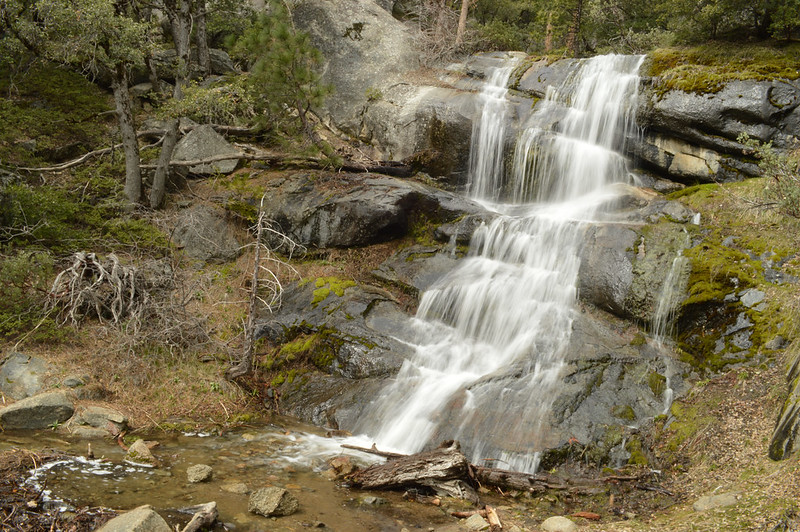
My favorite hike to take in Yosemite Park is the Chilnualna Falls trail. I have been up this trail many times and in almost every month of the year. Even though my back was acting up, I was determined not to return to Thailand before hiking this trail again. It was quiet that day, and quite snowy at the top. Along the trail, except in the dry part of the year, is a spot where a small creek cascades over some rocks before crossing the trail on its way to Chilnuala Creek. I decided to view it from a different angle this time, stepping off the trail about 50 feet to take this photo. I didn't have a tripod and had to brace the camera against a tree to get a slower exposure for this picture.
April-Yosemite Valley
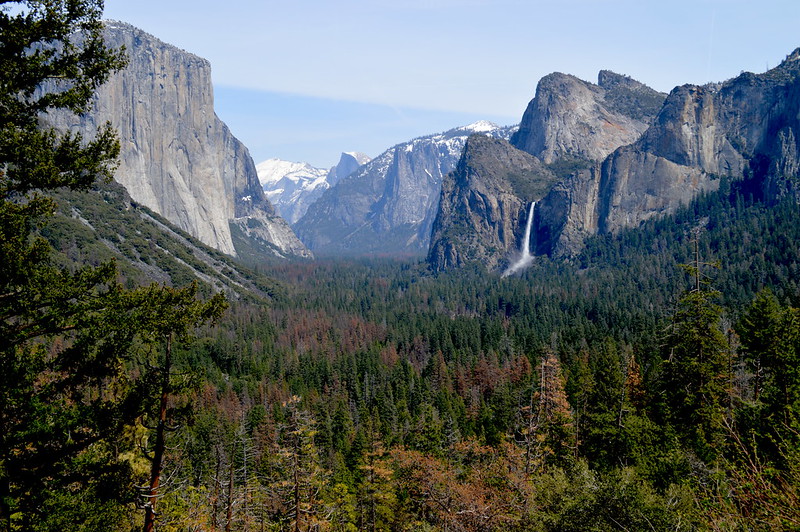
The photo for April may be old school and not really awesome as photos go, but it does mark the one time we got to Yosemite Valley during our time in California. The rivers were running fairly full, and there was snow on the higher parts of our journey. In a change from previous photos we have taken from this viewpoint, there are the patches of brown trees. This is a reminder that even if you go back to places you remember from your past, they won't always be as you remember them.
When you live in one place all the time, you may not notice all of the changes because they may be subtle. But when you only visit every few years, these things can be a bit more obvious. Time marches on--we change and everything around us changes.
One of the hard things about our current ministry, when we only get back "home" every few years, is that we would like things to be the same as they were when we left. But they aren't. This trip to Yosemite made that clear.
May-Move to Phon Phisai
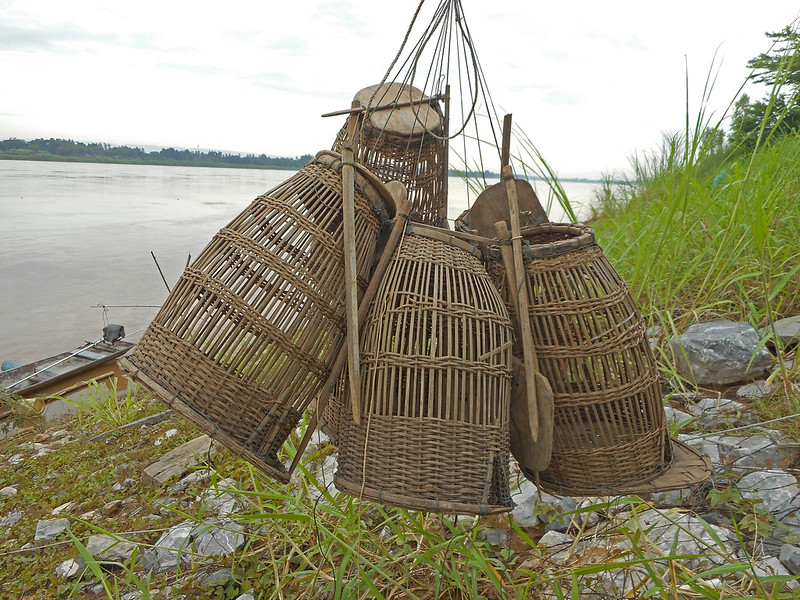
April and May was a time of a lot of movement for us. Fly back to Thailand to our old home in Wiang Kaen. Travel by bus to Chiang Mai to pick up our truck. Drive to Phon Phisai to look for a place to live. Back to Wiang Kaen to pack our stuff. Drive back to Phon Phisai. Hop on a bus to Chiang Mai for some team-building activities. Then bus to Wiang Kaen, pick up our other car and drive back to Phon Phisai.
Then we were home. Our new home--Phon Phisai at the confluence of the Huai Luang and Mekong Rivers. Lots of boats. Lots of different ways to catch fish.
And we were here to catch fish of sorts as well. When Jesus called his first disciples, his call was, "Come, follow me, and I will show you how to fish for people!" (Mark 1:17 NLT) So we, too, have come to fish for people--not to destroy them but to plant them in streams of life-giving water.
June-Dedicating a new church
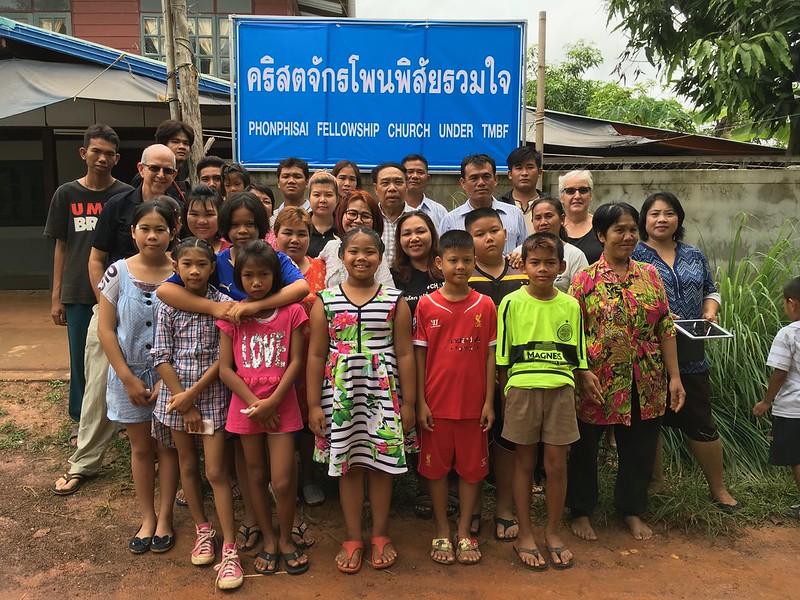
What a great time of celebration. Ajan Nat came up from Chachoengsao for the official kick-off of our new church in Phon Phisai. After a time of worship and prayer in the morning, we headed to a local swimming pool for some baptisms. Some of the faces in this photo are no longer in the church--some have moved to other places and others have moved away from Jesus. But new faces have replaced them.
Some of the young people here are growing fast and it is fun to be a part of their lives as they mature.
We are grateful for the work God has done in the lives of these people and are thankful for those who have remained faithful to Him.
July-Mekong Sunsets
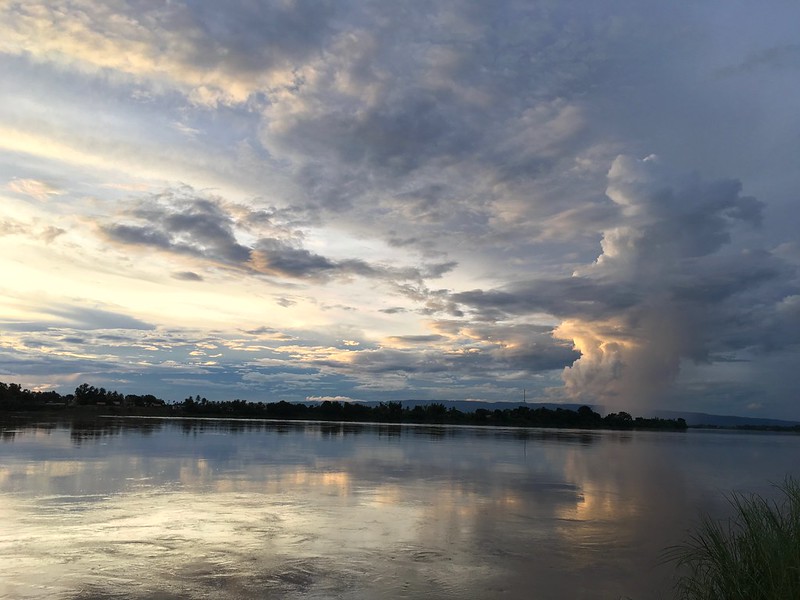
There are a lot of things not to like about rainy season here: flooded roads, mud, oppressive humidity, and everything getting moldy, to name a few. But there are some positives. One of the nice things about rainy season is the cloud formations. Often we go for sunset walks along the Mekong River to enjoy the sunset clouds over Laos. There is a lot of variability and it does not seem to get boring.
When I look at these awesome clouds that bring massive displays of energy in lightning and thunder, I am reminded of the awesome power of our God, which dwarfs all these things.
August-Phu Tawk
When you come to the main intersection in Nong Khai, there is a sign listing a few of the tourist attractions up ahead. What it does not tell you is how far away they are. One of the ones listed is only a few kilometers ahead. Phu Tawk, on the other hand, is a few hours ahead in a different province.
We were unaware of this place, until we drove by it one time on the way to check out a waterfall in adjoining Bueng Kan province. As we drove by this steep sided hill, we noticed the walkways on the side of it and we decided to go back on another occasion.
What an interesting place. It is a Buddhist holy site with a temple on the main level and lots of shrines in various places. there are several levels of walkways, and some look more sturdy than others. I have no idea who came up with the concept, but if you aren't afraid of heights, it is a fun place to visit.
August-Sunrise in our backyard
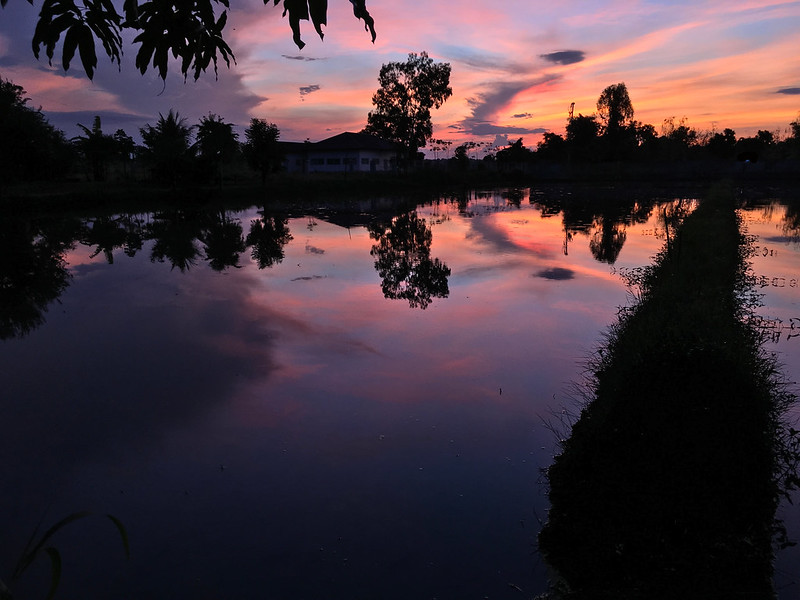
I cheated and added a second photo for this month. Adjoining our yard to the east is what was supposed to be a rice paddy. However, due to changes in the land drainage, it is too wet for rice (more about that here), and so became a pond throughout the rainy season.
One morning I was sitting at my desk doing my Bible reading, when I noticed this pink glow in the living room. I decided to investigate, an discovered this awesome sunrise display over the pond.
September-Than Thip Waterfall
One thing we have lots of in rainy season is water. It's a great time to visit some waterfalls (though some are too dangerous and it is better to visit them when things dry up a little). On this occasion we traveled to the western extreme of Nong Khai province to find Than Thip Waterfall. We arrived at the small park to find a deserted parking lot. Apparently mid-week during the school year is a great time to visit. We climbed the short trail and waded up the creek a little to get to this spot. I set my tripod up in the water (happens a lot when you photograph waterfalls) to snap this photo.
October-air plant
Shortly after our arrival here in Phon Phisai, we bought some hanging plants to decorate our window exterior. We found these interesting combinations of air plant and Spanish moss attached to the seed of a pong pong tree (Cerbera odollam). Both of the plants belong to the same genus: Tillandsia. We had no idea that the air plants would ever flower, but were amazed at the purple and yellow combination when they came out.
November-Meeting Lai
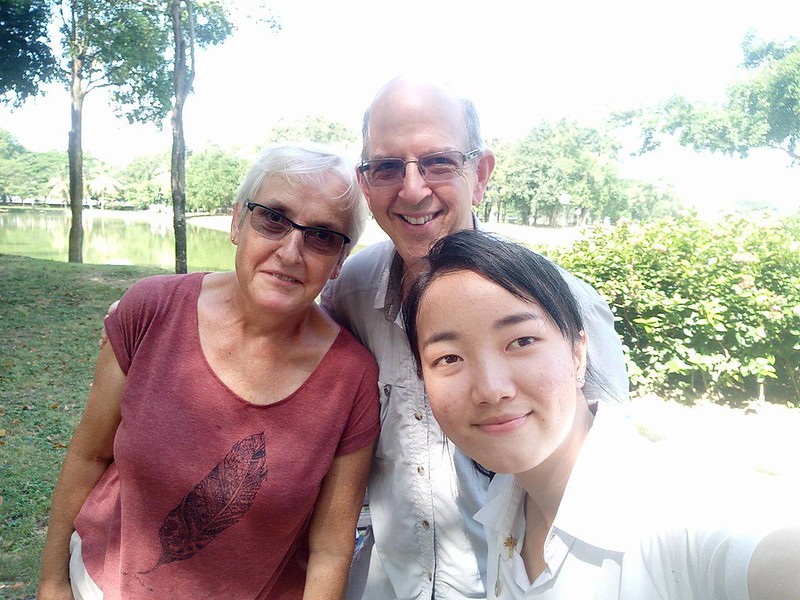
I didn't take this photo, but I wanted to include it as an extra for November, because it marked a memorable occasion when we were able to visit our friend, Lai, for the first time in over a year.
More about this encounter here.
November-Sam Roi Yod Beach

November is not the greatest time to visit Sam Roi Yod, because it can be the stormiest time of year. Indeed, the red flags were flying on the beaches during most of our stay. Still, it is our favorite place to hang out in Thailand because it is quiet and mostly undiscovered by tourists. There is a nice mix of mountains, beaches, mangroves, freshwater mashes and rivers.
It seems like there is never a good time to take a vacation, but I learned during our last term that burnout comes too easily if we're not careful. This was our first break since returning to Thailand and all the stress of moving, saying goodbye, making new friends, learning our way around new places and learning how to work with new team members had caught up to us.
While we stayed in Sam Roi Yod, we got to meet missionaries from other countries and even some fellow missionaries from another part of Isaan that we had not met before.
December-Christmas Celebration
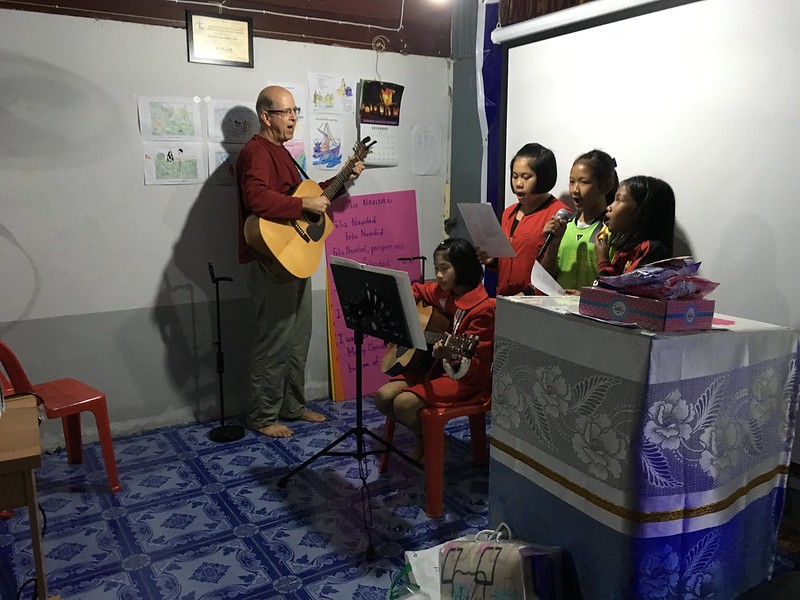
One of the interesting things about our job is that you never know who you may end up working with. Here in Phon Phisai, God has placed in our lives a group of pre-teen girls who have been interested in learning English, learning about Jesus, baking cookies and, for two of them, learning to play guitar.
On December 27th, our church had its first-ever Christmas outreach event. About 60 people came that evening. What a joy it was to hear there girls get up and sing some songs about the birth of our Savior in both English and Thai (and even a little Spanish). And while the vocals may not have been the highest quality (we still have time to work on that), there was lots of enthusiasm. (Some more about that evening here.)
What a great way to finish up a year.


